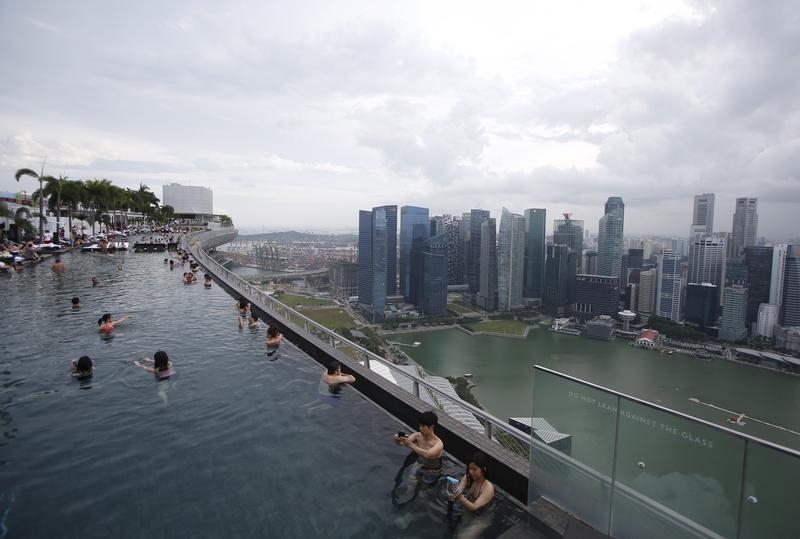
Singapore home prices dropped for a ninth quarter, posting the longest losing streak in 17 years, as tighter mortgage curbs cooled demand in Asia’s second-most expensive housing market.
An index tracking private residential prices fell 0.5% in the three months ended Dec. 31 from the previous quarter, according to preliminary data from the Urban Redevelopment Authority on Monday. That took the annual decline to 3.7%, almost matching the 4 percent drop in 2014, which was the first year-on-year slide since 2008.
Developers sold 5,599 new units in the nine months to September, on course for the lowest annual sales since 2008.
The government began introducing residential property curbs in 2009 as low interest rates and demand from foreign buyers raised concerns that the market was overheating. They have included a cap on debt repayment costs at 60 percent of a borrower’s monthly income, higher stamp duties on home purchases and an increase in real estate taxes.
“The market is reaching the bottom,” said Nicholas Mak, an executive director at SLP International Property Consultants in Singapore. “We will see less than 1 percent declines in the first two quarters of this year. Prices will continue to grind lower until there are changes in the macro economic environment or the government makes some tweaks to the property measures.”
Apartment prices fell 0.4% in prime districts in the fourth quarter, the data showed. Those in the suburbs and in areas near prime districts remained unchanged from the third quarter when they each slipped 1.6% For 2015, prices slid 2.6% in prime areas and 3.7% in the suburbs, the data showed. Prices for stand-alone homes mainly reserved for local buyers dropped 4.4% last year.
City Developments call
City Developments Ltd., Singapore’s second-largest builder, called on the government to review property curbs “as soon as possible.” Home prices continue to decline across all market segments, City Developments said in November. Demand for residential units, especially at the high end, remains tepid, while sales continue to be adversely impacted by the various government cooling measures, rising interest rates and concerns over the local and global economies, the developer said.
The deterioration in economic sentiment, combined with a worsening supply‐demand imbalance and rising vacancy rates, risk precipitating a downward spiraling of property prices, Augustine Tan, president of the Real Estate Developers’ Association of Singapore said in September. The property cooling measures, in the current tone and intensity, could increase the risk to the real estate market and economy, he said.
Singapore remains a high-end housing market in Asia. The city was ranked the most expensive city to buy a luxury home after Hong Kong in the region, according to a 2015 Knight Frank wealth report.
Source : theedgeproperty.com.my
